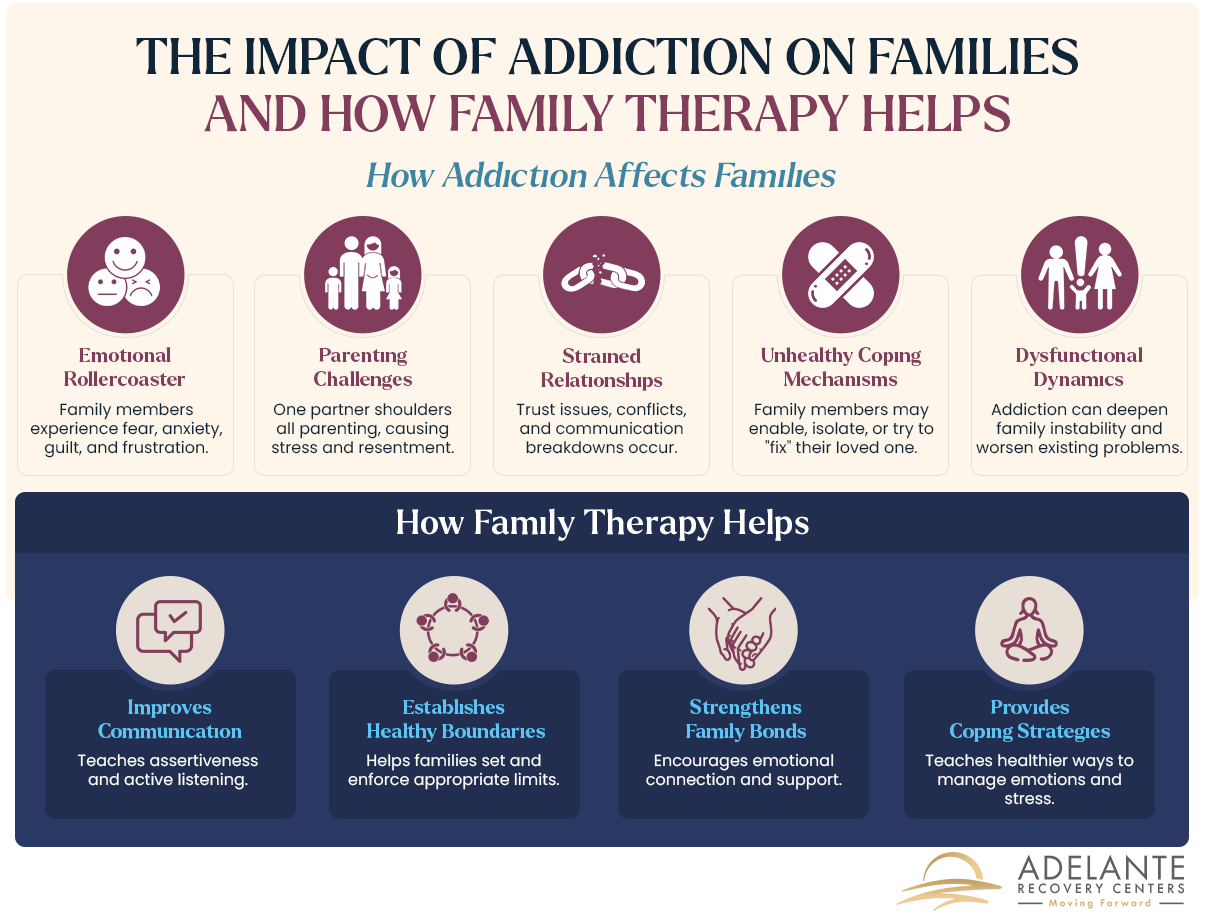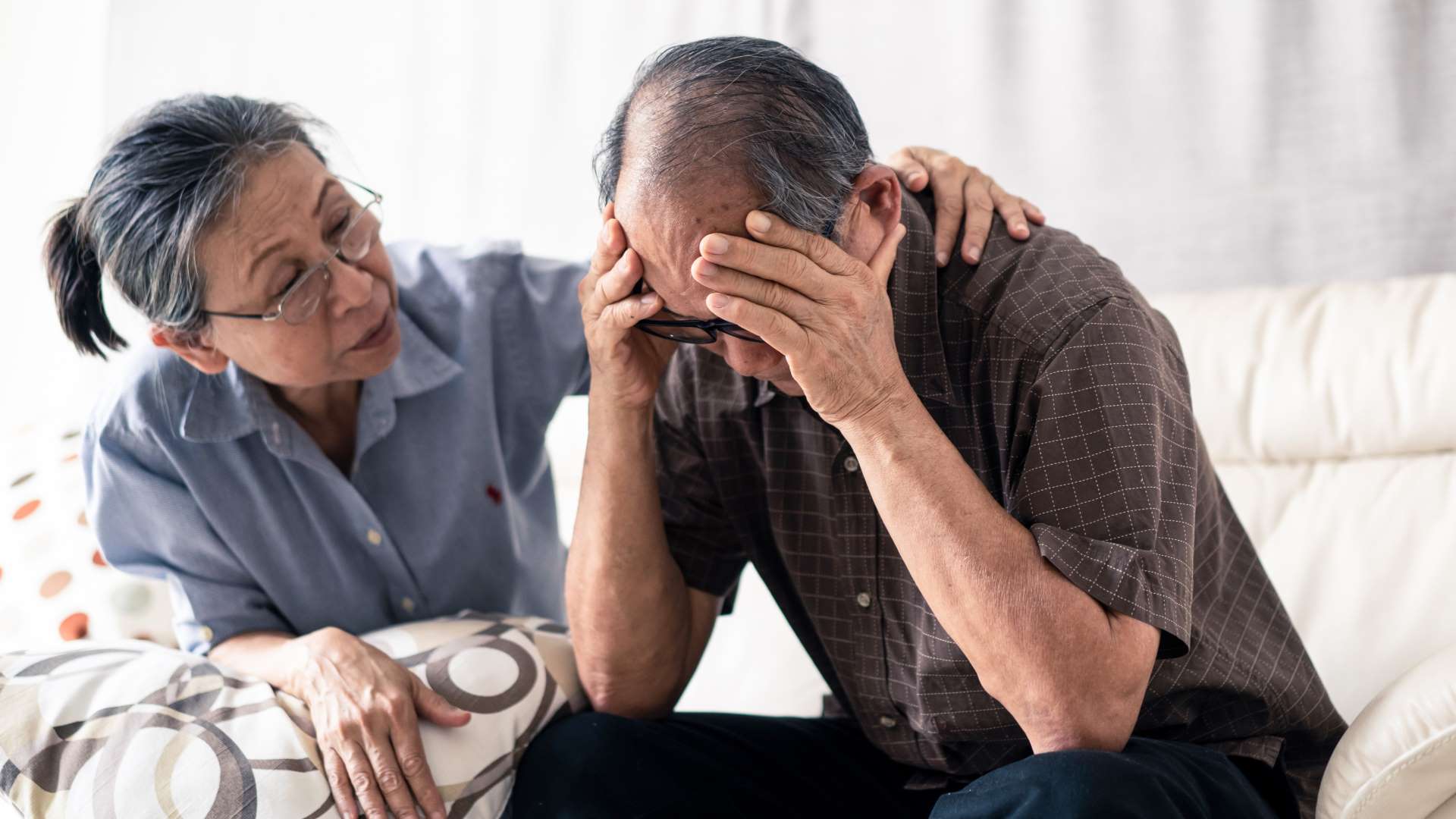Addiction truly is a family disease. When one family member struggles with addiction, it negatively impacts all members of the family system, especially immediate family members and others in the same household.
Children are particularly vulnerable to the negative effects of addiction. They may struggle with depression, anxiety, confusion, and low self-esteem, which can impair their capacity for learning and their ability to form healthy relationships in the future.

Substance abuse affects families in different ways depending on the family structure. Here are some common scenarios:

Family members of a substance abuser often experience a roller coaster of emotions, including fear and anxiety, worry and concern for their loved one, feelings of abandonment, embarrassment about their family member’s behavior, and guilt, shame, or anger.
If not properly addressed, these feelings can lead to unhealthy coping strategies. Some family members may try to “rescue” their loved one. Others may shut the person out or isolate themselves. Siblings sometimes try to become “model children” to compensate.
Addiction can make dysfunctional family dynamics even worse, as each family member tries to cope.
Addiction treatment often has the best outcomes when the person’s family is involved. In fact, family members can actually hinder their loved one’s recovery if they continue unhealthy or enabling behaviors. This is where family behavior counseling comes in.
Addiction counselors and licensed marriage and family therapists (LMFT) who specialize in addiction are trained to help family members understand how addiction affects family dynamics.
The goals of family therapy are to help family members communicate better and solve problems without criticizing and blaming. A skilled therapist can help families develop the following skills:
Family therapy is ultimately about relationships. It’s about helping each family member understand the role they play and how they can get their needs met and meet others’ needs in a healthy way.
A skilled therapist does more than point out problems or passively listen. They help families identify their strengths and resiliencies—and use those strengths to form stronger bonds.
The best time to start family behavior therapy is after the person in treatment has made some progress in their recovery.
The team at Adelante Recovery Center encourages family members to get involved in their loved one’s addiction treatment. Family therapy can help address long standing family issues and unhealthy family dynamics that may be contributing to the person’s addiction. It’s important for all family members to heal and learn healthier ways of communicating and relating.
Our skilled therapists are trained in cognitive behavioral therapy (CBT), a useful tool for helping family members identify and change unhelpful thoughts and behaviors. We also offer dual diagnosis care for clients who have co-occurring mental health challenges, such as depression, anxiety, or post-traumatic stress disorder.
Family counseling sessions at our Orange County treatment center usually last for an hour, and the focus may change each time. Some sessions focus exclusively on the person in treatment, while others focus on another family member or the family as a whole. Specific goals and objectives for family therapy are unique to each family, and they may change over time.
Contact us to learn more about family therapy at our Orange County drug and alcohol rehab center in Corona del Mar.
If you or a loved one are in need of help with addiction, contact us today. Our professional and friendly addiction specialists are able to answer your questions and get things moving in the right direction.
"*" indicates required fields
Adelante Recovery Center is here to help those battling drug and alcohol addiction. We are located in beautiful southern California and welcome those from across the country.
49 Montecito Dr, Corona Del Mar, CA 92625
Phone: (949) 978-0797
Fax: (951) 406-0013
Open 24/7
Adelante Recovery Center is here to help those battling drug and alcohol addiction. We are located in beautiful southern California and welcome those from across the country.
Adelante Recovery Center
49 Montecito Dr, Corona Del Mar, CA 92625
Phone: (949) 978-0797 Fax: (951) 406-0013 Open 24/7